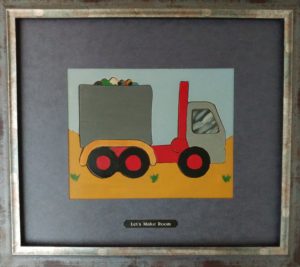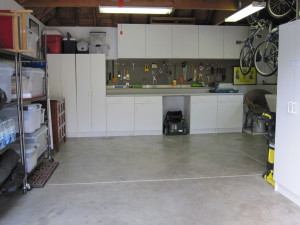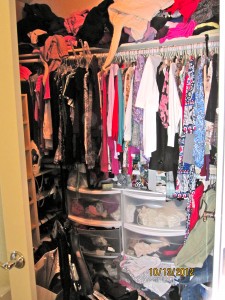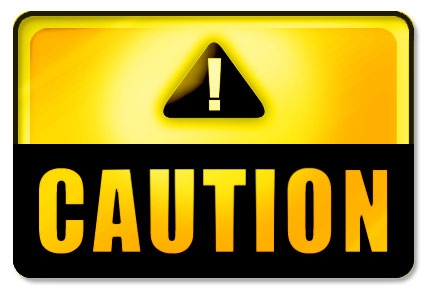Recently I’ve been thinking about things. Not things in a colloquial sense but literal things, objects: the computer; my grandmother’s sculpture; the four pairs of eyeglasses I own. I’ve also been thinking about memories. What it means to have a memory? What it means to lose your memory? What it means to lose your memories, as thousands of people did last week when they lost their homes in the Northern California fires, just about 90 minutes from my home in Oakland.
I work with people nearly every week helping them decide what to do when they want (or need) to let go of stuff. Not just the things that remind them of who they once were, or places they once visited but also regular things too; Things they find useful or once did.
Two of my close friends lost their home in the Northern California fires. They lost everything they owned. They had just enough time to escape with their dogs and the clothes they must have quickly put on since it was 1 a.m. when they evacuated. My friends are extremely resilient. They’ve chosen to move forward, not look back. I know it must be hard. I wonder how often during the day they face the inconvenience of no longer having small things, or feel the waves of grief flow over them when they think about the loss of more important stuff.
I’ve heard many of my clients say to me, “I can’t let that go. It reminds me of ….” I sometimes ask, what would happen if (blank) should disappear? Would the memory go with it? In some cases it could and it does. I think this is what is so profoundly difficult about the process of getting organized, downsized or as I like to call it “curating” your life’s contents.
A long time ago I was hired to clear out a small storage unit belonging to a woman who had died and whose family was not interested in claiming the contents. There was in fact nothing of significant monetary value left behind but there were “memories.” Commemorative plaques; a community service award; several family photos, a child’s simple drawings as well as knickknacks and other personal items. Things that were obtained, given, created for her and about her. Without her, I realized they didn’t mean much to me but they meant something to her.
People who lost everything in the Northern California fires last week and for that matter from the storms in Texas and Puerto Rico just days earlier, are heard in the news saying how “grateful” they are for having their families, for having survived, for knowing how “lucky” they were. It’s an amazing testament to their humanity that they can recognize this at one of the lowest points of their lives. And I have no doubt that they too are grieving the loss of their memories and possessions.
I’m not sure what all this has taught me as a professional organizer or even just as another human being. Of course, like many, I’ve considered what I would do and feel if I was in a similar circumstance. As a professional, I wholeheartedly encourage planning whether it be creating a safety plan with your family, an emergency kit or getting your most treasured memories and important documents digitized.
Being prepared also means helping those you love be better prepared to grieve by making your wishes known ahead of time, like a living will. This type of document lets others know what matters most to you when you can no longer make those decisions yourself. A dear friend did this about six months before she passed away and it made a world of difference to her closest friends and family. She wrote her plans down. At the top of the page she’d written the title, “End Of Life Matters.” The irony was not lost on either of us.
Last week my crew and I helped a couple downsize their home of twenty plus years. It’s something I’ve done many, many times yet each experience is different. Together and separately my clients made literally thousands of decisions in just a few days. Some of those decisions were easy. Many more were not. Even the most seemingly benign objects brought back memories of family gatherings, professional obligations, personal triumphs and poignant losses. Without context they are just things but for them they represented the meaning of their lives.
When my clients let go of things sometimes the memories go with them. I see my clients resist and I feel that struggle. Sometimes I even feel it directed at me though I know it’s not. I tell them, “I don’t have an opinion about what you keep. I do, however, have an opinion about helping you get to where you want to go.”
Letting go of things can sometimes feel like choosing to let go of memories. And who chooses to let go of their memories?! At least with my clients the choice is theirs. This wasn’t the case for the people in the recent fires. Do their memories go with them even when they have lost everything?
I hope so.











